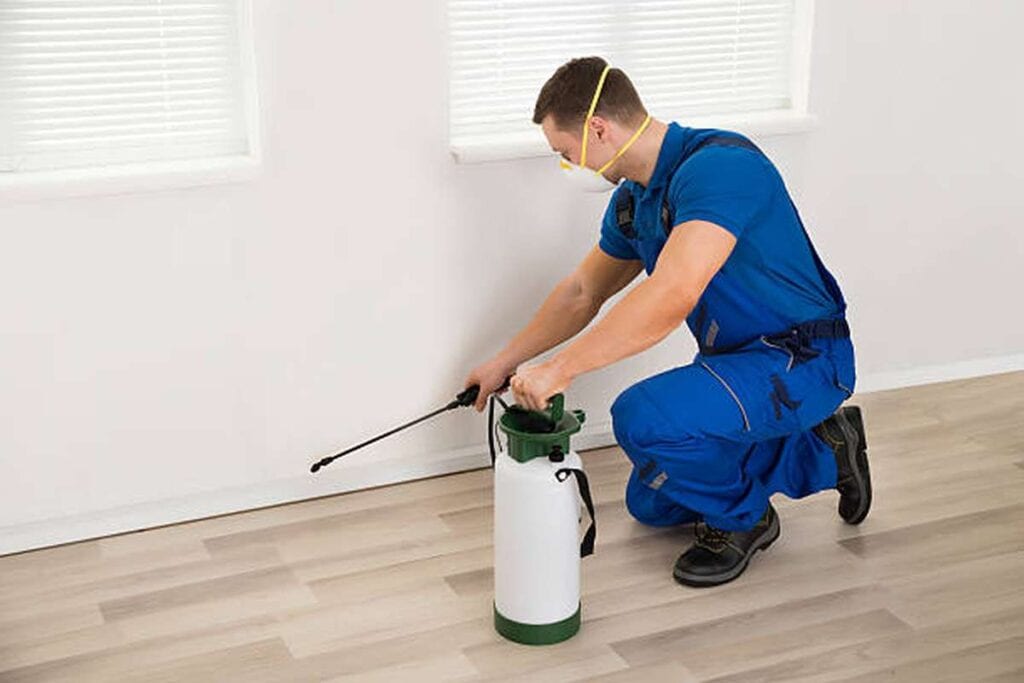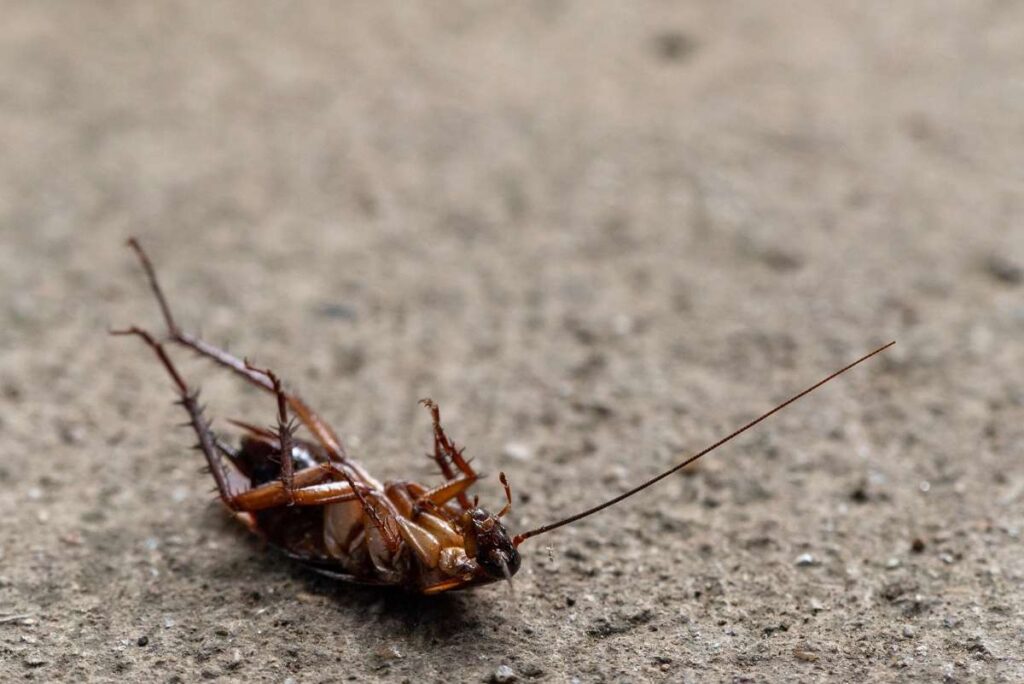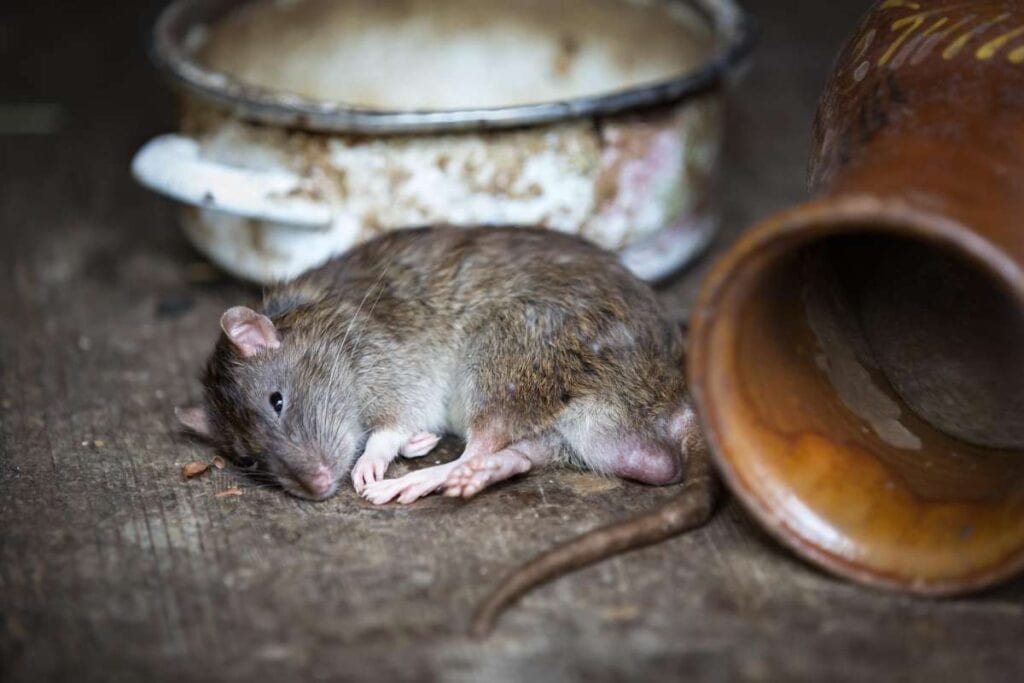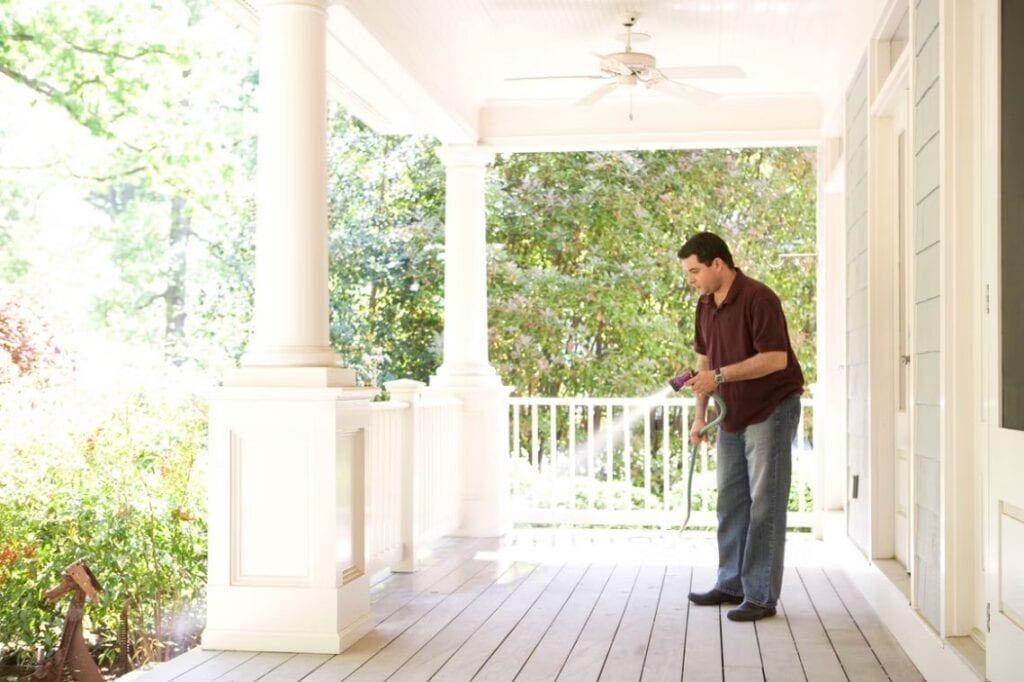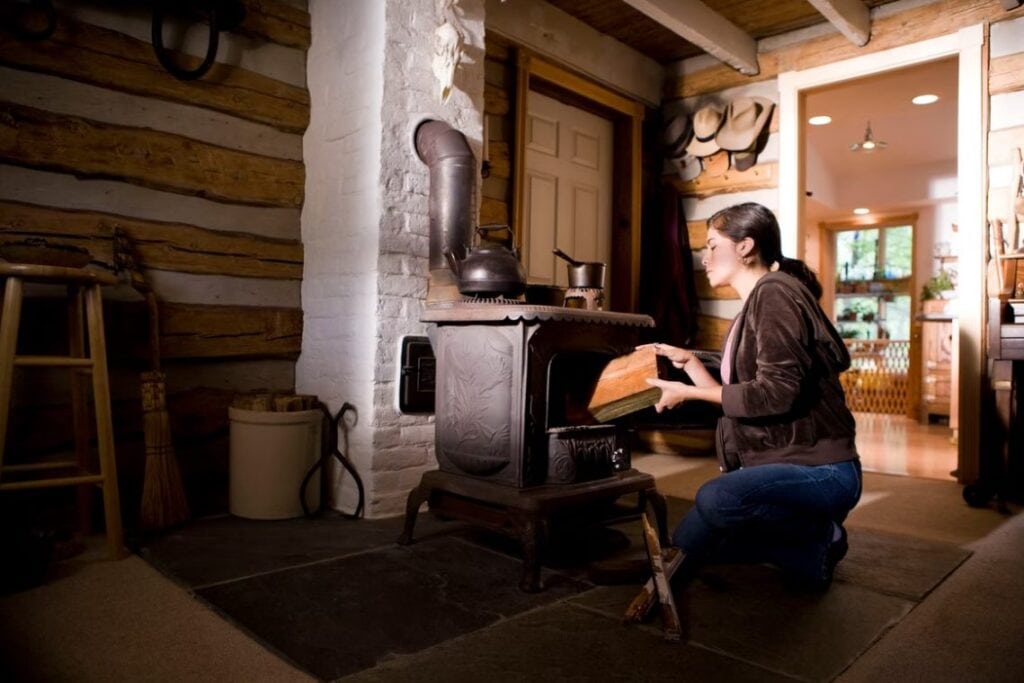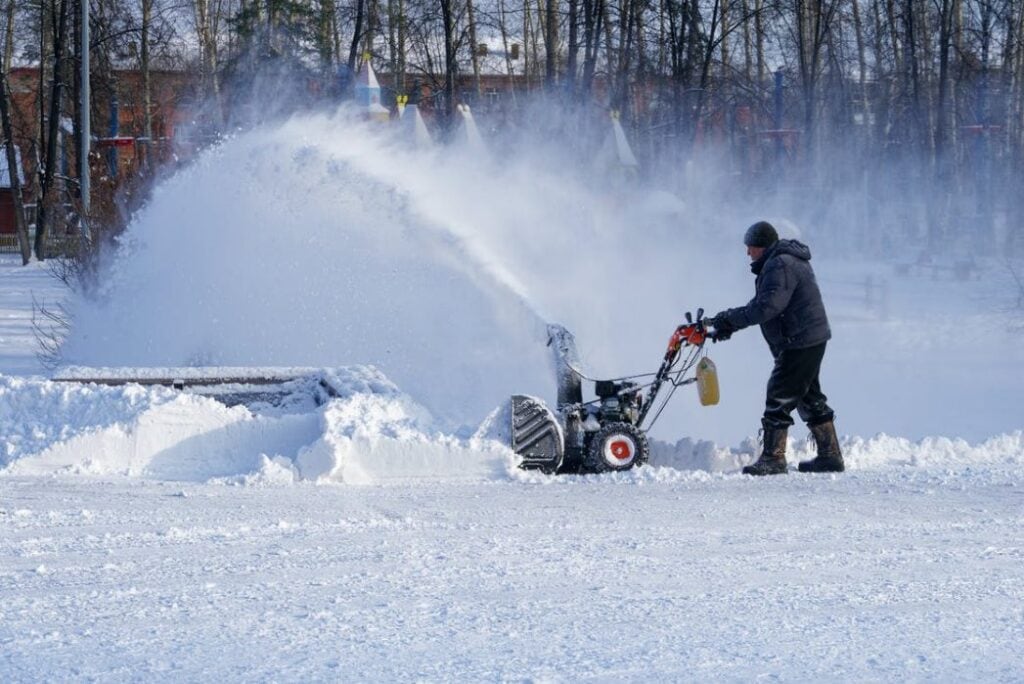It is a natural question to have at this time of year. It is essential to consider the necessity of taking measures to keep unwanted critters out of your house. To keep your home secure and free of pests this fall, here are some tips for pest control that you can use.
Top Pest-Proofing Tips For Fall
Everyone stays inside when the temperature drops. A sense of cosiness can come from doing something as simple as sitting in your living room wearing your slippers and wrapping a blanket around your shoulders until a mouse darts across the floor in front of me.
Because their life cycles are longer than one year, pests such as rats, mice, cockroaches, and certain species of spiders require shelter during winter to survive. These unwanted guests can present significant dangers to both people and their homes.
When rodents make their nests in walls, they have the potential to damage electrical wires and drywall. Furthermore, rodents transmit diseases like salmonella and Hantavirus to humans. Cockroaches can cause allergic asthma, particularly in children, contaminate the food that has been stored, leave droppings all over the house, and leave droppings. In addition, certain species of spiders that are common in and around homes are poisonous.
- Close any access points to your home, including mail slots and animal doors, by installing screens over your attic vents and chimney openings.
- Basements, attics, and crawl spaces need adequate ventilation to be kept dry. Water is a vital life source for pests, so they tend to congregate around its sources. To maintain a dry basement or garage, use a dehumidifier.
- You can use caulk and steel wool to seal exterior cracks and crevices. You should carefully monitor the entry points of utility pipes. Some rodents can squeeze through openings as small as a dime.
- Always wipe down your kitchen counters after using them, never leave food out, and always throw away trash in a closed container. Pests that forage for food will attract crumbs and a pile of garbage. A thorough cleanup should follow each meal, and trash cans should be securely closed when not in use.
- Put in new weather-stripping and fix any cracked or broken mortar around the windows or foundation. These simple measures will help keep unwanted guests out of the house and the cold.
- The recommended distance for storing firewood is 20 feet from the house, and you should regularly trim bushes to maintain this distance. You can lessen the likelihood of pests getting inside your home by eliminating potential hiding spots around it.
- Fix broken screens and door sweeps. Home pests can quickly enter the house through holes in the window screen or a split in the door frame. More than just air might come in if you crack that window open.
- Before bringing in your Christmas decorations, packages, or groceries, make sure you've checked them over thoroughly. Creatures with a mind for pest control can devise ingenious means of breaching even the most secure homes. Everything sitting or stored outside needs to be shaken out and checked.
- If you can, try not to leave your pet's food and water bowls out overnight. Even cat food is fair game for pests. Pests are attracted to pet food bowls left out in the open.
- Make sure there is adequate drainage in the outside area. By installing new gutters or fixing damaged ones, you can divert water and moisture away from your home and reduce the risk of leaks and moisture buildup that could be attractive to pests.
Don't Give Pests An Opening.
Insects can easily find their way inside without ever seeing your welcome mat. As an entrance, anything as small as a hairline fracture will do.
Get outside on these lovely fall days and give your home a thorough once over. Keep in mind that some pests only need an opening of an eighth of an inch or less to gain entry, so inspect the entire area thoroughly. It's possible to use various techniques to seal cracks and crevices, depending on their location.
Concrete patch products are designed to be used on small cracks in a foundation, and they frequently include vinyl to make for an easy application and a watertight seal.
Weather stripping can be used to seal cracks around windows and doors. Caulk could be helpful as well.
Garage doors are constantly subjected to the elements, which causes the gaskets along the bottom and the weather stripping on the sides to wear out quickly. Locate any potential problem areas that may require fixing or replacing.
Pipes, cords, and lines enter homes through various openings in the walls. Packing these cracks with steel wool and sealing them with caulk can prevent insects and rodents from entering the building.
Various insects and even bigger pests like rodents can find their way inside through roof issues. While using roof sealant products to close off any holes, you should double-check for any missing shingles that need to be replaced. Waterproofing your home is a bonus of maintaining a solid roof.
Covering attic vents with hardware cloth keeps insects out while allowing air to circulate. Rather than using chicken wire, which is less secure than hardware cloth, use the latter.
If you're having trouble dealing with pests, now is the time to get in touch with the pest control experts in your area.
All Pests is the most reliable pest control company in Melbourne. We are highly skilled in the extermination of any and all sorts of vermin, from termites to birds. In order to complete the task in a timely and effective manner, our team of experienced specialists makes use of the most recent methods and tools available.
We are aware of the aggravating and inconvenient effects that bugs can have. We provide services that can be tailored to your needs and financial constraints. We will aid you in eliminating unwanted pests in an effective manner.
Check out our website right now and get in touch with us!
Monitor Your Firewood For Insects To Prevent Them From Jumping Into Your Home.

Despite the lack of severe cold, we still get to make good use of our fireplaces and outdoor pits frequently. If you keep a pile of firewood nearby for those cosy evenings, you might want to make it trickier to throw a few logs on the fire. Many unwanted critters would love to make a home in a stack of dry wood for the winter.
Certain types of beetles, for example, are only interested in eating firewood and not your house's framing, so they pose little threat. In contrast, some pests, like termites, should be kept at arm's length.
You should store wood in a dry, covered area off the ground. Use a rack or elevated platform to prevent termite infestation and promote drying while reducing moisture.
Distance your home and garage from the area. By keeping firewood stacked against the outside walls, you are inviting pests inside.
Check the firewood for any signs of insects or other pests before bringing it inside.
It's not a good idea to bring in more firewood than you'll need for the evening's fire. Some pests, attracted to the firewood because of the warmer, drier conditions inside your home, may even start laying eggs in it.
Make Your House Pest-Unfriendly.
Like all other forms of life, pests have basic needs like eating, drinking, and sleeping. You can avoid providing these basics by doing the following:
These would make excellent nesting materials.
Keep your home clean by clearing the kitchen of any spills or crumbs each night to deprive pests of a food source. Ensure the kids haven't hidden any snacks in their rooms and the bathroom faucets aren't dripping.
Do you have large pests in your area? All Pests is the company to call for large pests removal in Melbourne. We have the experience and expertise to take care of any infestation, big or small.
Ensure That The Screens In The Attic Vents Are In Good Working Order.
When I inspect older homes, I frequently find that the attic or roof vent either doesn't have a screen or the screen is damaged. These screens keep out squirrels and bats.
Put In Pest-Proof Screens On Your Dryer And Exhaust Fan Vents.
You can pump heat out of your dryer and exhaust fans during the winter. As a result, rodents will likely try to enter your home through these openings. Keep them hidden and under wraps.
A Chimney Cap Is A Necessary Safety Precaution.
Animals such as birds, bats, and even raccoons may become trapped inside your chimney if the conditions are right. Get a chimney cap right now to avoid these catastrophes.
You Should Install Door Sweeps On All Exterior Doors.
Door sweeps are small gaskets installed at the bottom of doors to seal out draughts, pests, and noise. Problems can quickly enter your home through the depths of doors. Door sweeps of industrial-strength are available from companies like Debug that deal with pests.
Do you have a pest problem? All Pests is a team of experts in small pests removal in Melbourne. Our fast and effective treatments will take care of any infestation, so you can rest easy knowing your property is safe.
Food For Pets (Or Feed For Animals) Should Be Kept In A Sealed Container And Kept Inside A Building.
Most homeowners who buy pet food mistake of storing it in the original bag it came in.
Get Under Your Fridge And Stove And Give Them A Good Scrub Down.
Many customers overlook cleaning behind large appliances like refrigerators and stoves when cleaning their homes. The rapid accumulation of organic matter in these spots provides rodents and cockroaches with an enticing food source.
Trash Cans Should Be Kept In A Clean, Dry Place That Is Not Close To Your House.
Wildlife and rodents are always on the lookout for a meal. Trash cans are a prime location for them to scavenge for food in your home. Leaving the lid off or letting food debris accumulate inside makes it more enticing. Rodents can also quickly get into food containers if the covers aren't very sturdy.
Remove Any Branches That Are Touching Your Roof.
Animals can easily access attics by climbing up onto the roof from low-hanging tree branches. They can gain entry through cracks in the foundation or the chimney. Therefore, prune the trees if you find that you require tree removal. Plant a new one, but keep it far from your house.
Firewood Should Be Kept In A Dry Place Separate From The House.
The firewood should be stored away from the house so that rodents do not make it their home. Keeping wood close to the house provides rodents with a warm, dry place to nest. To further reduce the likelihood of wood-destroying insects, it is recommended that the wood be stored off the ground on a shelf. Also, keep it under some cover, as carpenter ants will most likely attack if it rains on it.
Rodents, termites, and carpenter ants will have an easier time gnawing through water-damaged wood with all the holes and weakened spots.
Close Up Any Exterior Cracks Or Openings In Your House.
The coming winter means that mice and rats will actively seek entry points into your home. It is necessary to thoroughly inspect the entire area, looking for holes and gaps that can be sealed off with steel walls or cement.
A mouse can squeeze through a hole that's only 1/4 inch wide, and a rat needs only 1/2 inch. If you want to avoid hassles this winter, it's best to go around and seal off access points in the fall.
Dry Up Any Dampness
The darkest and most inaccessible parts of a house are often the basement, the attic, and the crawl space. Even if you take every precaution, pests can't be stopped from being attracted to damp places. It's essential to check the basement (or attic) for water damage or leaks, fix them if you find them, and use a dehumidifier to maintain a comfortable humidity level. While at it, climb a ladder and clear out your gutters to prevent water from backing up onto your roof.
Fill In All The Holes
Take a look at the house from the outside. Look at the walls and the foundation; do you notice any fissures? Can you see any cracks or openings that could allow you to get underneath or inside? Is your house's siding flaking or separating from the wall? Sealing these entry points is essential for preventing pest infestations. Although it may seem impossible, even a mouse can fit through a hole the size of a dime.
Place Screens Over Vents
Don't forget about the parts of your house that may not need fixing until it's too late. Many standard household features, such as dryer and HVAC vents, chimneys, and even doggy doors, can serve as open invitations to unwanted guests. Screens are a great way to maintain ventilation and keep insects out of spaces that can't be completely sealed off.
Fixing The Tackles
Further to the second piece of advice: Check off the items on your fall home maintenance checklist as you tidy up the house. Fix any broken window or door screens, replace any weather stripping that may have come loose around the exterior doors, and inspect the mortar between the bricks for cracks. There are many ways for insects and other pests to gain access to your home.
Make Sure The Kitchen Is Spotless
Open food containers in the pantry are like a never-ending snack bar, and food and water left in pet bowls are like an endless supply of nourishment for creepy-crawlies. When given the option, would you leave a place where you could eat as much as you wanted?
Refuse Keeping Tabs
Let's assume that you complied with your mother's request to clean up the kitchen before moving on to the outdoor trash cans. Trash bags should be tied shut, and garbage can lids should fit snugly and be placed at least a few feet away from the house. In that way, any pests that manage to enter will be sufficiently discouraged from entering the house.
Ensure That All Items You Intend To Bring Inside Have Been Checked.
Look at what you're bringing inside, whether it's a summer wreath you're replacing with a Halloween one or a package from Amazon that arrived while you were at work. It's possible that you're also bringing in unwanted pests. When you're done collecting leaves in the fall, don't forget to bring in the lawnmower and any other yard tools stored in the garage.
Landscape Upkeep
Although gathering around the fire pit in the fall is great fun, it also serves as a perfect place for insects to set up housekeeping for the winter. Keep firewood away from your house and always wipe it down after use.
Watch For Signs
However well you take care of your home and implement preventative measures, it is still possible for pests to sneak inside.
Employ Qualified Help
Let our team of professionals handle pest control while you focus on fall decorating with DYing accents. We can eliminate and help keep out a wide variety of pests, including ants, spiders, rodents, cockroaches, and more. Before the cold of winter sets in, don't hesitate to get in touch if you've got a pest problem.
Preventing Pests
It is a necessary prerequisite and an efficient method for keeping pests at bay. Consistent cleaning is essential, but you may take additional measures to reduce the likelihood of animal or insect infestation. Here are some preventative measures to implement on the premises:
- Deprive them of their ability to survive by removing their access to food, water, and shelter.
- Put things away in secure, closed containers.
- Regularly and securely close the lid when throwing trash away.
- Get rid of any clutter or crevices pests can use as hiding places.
- To prevent outsiders from entering, seal and close off any openings.
- Maintain the entire structure, from the attic to the cellar, by regularly cleaning and inspecting it.
Infestation Identification
The severity of their effects can vary widely, from being a minor annoyance to being fatal. Common pests include the following:
- Flies \sAnts \sBirds
- Rats
- Mice
- Mosquitos
- Cockroaches
Parasitic Insects, Also Known as Bed Bugs
These creatures are widely distributed throughout both urban and rural areas. Once a pest has invaded your workplace, however, it can wreak havoc on your business and employees. Some people only need to see a mouse scurry across the floor, while the evidence is more nuanced for others. Many different things can attract pests, including food, water, shelter, or all three. If you suspect an infestation, look in any rooms or storage spaces that could satisfy any of these three requirements. Warehouse rafters, basements, and open-air are all fair game for storing food. If you cannot locate the pest problem on your own, it is recommended that you seek the assistance of a professional.
Pest Control Methods
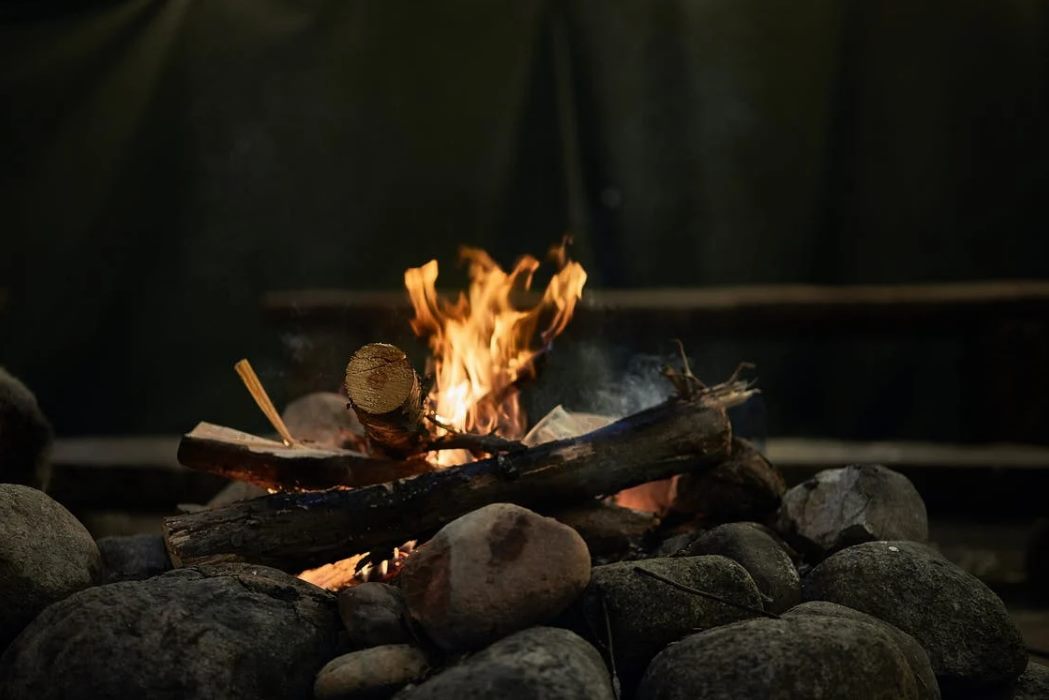
It's possible to use chemical or biological approaches to prevent pest infestations.
Using natural predators and parasites to control pest populations is an example of biological pest control. Threats can come in many forms, including predation, parasitism, and disease. One significant benefit of natural approaches is that they don't necessitate the use of harmful chemicals. Therefore, this approach is safe for both people and the planet. Another benefit is that pests do not develop resistance to the treatment over time. However, most biological methods take some time to work and are only practical for minor pest invasions like insects or plants.
Pesticides are used in chemical pest control to kill unwanted insects and other pests. These methods are more accessible than biological ones. Most chemicals also have a quicker response time or even instantaneous effects. Solutions that kill or otherwise remove insects or other crawling or flying pests are known as insecticides and repellants. These toxins pose risks to human health and the environment; despite their many valuable applications, the effects of most modern chemicals are short-lived.
If you take preventative measures and use effective products, you can keep pests from interfering with your business or facility's operations. The best way to prevent and manage problems is through consistent monitoring and prompt response.
Conclusion
Pest control companies see an increase in business in the fall. The following are some suggestions for avoiding unwanted pests in your house during the current season. Pests are drawn to sources of nourishment and hydration, so eliminate these first. It's essential to keep food fresh by preventing spoilage by storing it in airtight containers and doing up any crumbs that have fallen. Second, ensure no pests can get in through any openings around your house. Last but not least, if you find that you have a pest problem in your home, you should hire a professional pest controller.
Content Summary
- You may wonder how to get your home ready for the autumn season as the temperature drops.
- It is essential to consider the necessity of taking measures to keep unwanted critters out of your house.
- To keep your home secure and free of pests this fall, here are some tips for pest control that you can use.
- Put in new weather-stripping and fix any cracked or broken mortar around the windows or foundation.
- Fix broken screens and door sweeps.
- Even cat food is fair game for pests.
- Make sure there is adequate drainage in the outside area.
- Weather stripping can be used to seal cracks around windows and doors.
- Pipes, cords, and lines enter homes through various openings in the walls.
- Waterproofing your home is a bonus of maintaining a solid roof.
- Distance your home and garage from the area.
- By keeping firewood stacked against the outside walls, you are inviting pests inside.
- Check the firewood for any signs of insects or other pests before bringing it inside.
- When I inspect older homes, I frequently find that the attic or roof vent either doesn't have a screen or the screen is damaged.
- Keep them hidden and under wraps.
- Get a chimney cap right now to avoid these catastrophes.
- You Should Install Door Sweeps On All Exterior Doors.
- Trash cans are a prime location for them to scavenge for food in your home.
- The firewood should be stored away from the house so that rodents do not make it their home.
- Keeping wood close to the house provides rodents with a warm, dry place to nest.
- The coming winter means that mice and rats will actively seek entry points into your home.
- Take a look at the house from the outside.
- Sealing these entry points is essential for preventing pest infestations.
- Don't forget about the parts of your house that may not need fixing until it's too late.
- Further to the second piece of advice: Check off the items on your fall home maintenance checklist as you tidy up the house.
- There are many ways for insects and other pests to gain access to your home.
- Although gathering around the fire pit in the fall is great fun, it also serves as a perfect place for insects to set up housekeeping for the winter.
- Keep firewood away from your house and always wipe it down after use.
- Let our team of professionals handle pest control while you focus on fall decorating with DYing accents.
- Before the cold of winter sets in, don't hesitate to get in touch if you've got a pest problem.
- Deprive them of their ability to survive by removing their access to food, water, and shelter.
- If you cannot locate the pest problem on your own, it is recommended that you seek the assistance of a professional.
- It's possible to use chemical or biological approaches to prevent pest infestations.
- Using natural predators and parasites to control pest populations is an example of biological pest control.
- One significant benefit of natural approaches is that they don't necessitate the use of harmful chemicals.
- Pesticides are used in chemical pest control to kill unwanted insects and other pests.
- If you take preventative measures and use effective products, you can keep pests from interfering with your business or facility's operations.
- The following are some suggestions for avoiding unwanted pests in your house during the current season.
- Last but not least, if you find that you have a pest problem in your home, you should hire a professional pest controller.
- Spraying your home is an essential part of the fall cleaning ritual.
- Some people may believe there is no need to spray the house in the fall due to the hibernation of insects, but this is not the case.
- Early spring is ideal for having your home sprayed.
- Rodents, insects, birds, and other wildlife all fall into the category of pests.
- More information about each type of pest, including warning signs of infestation and methods for avoiding them, can be found below.
FAQs About Pest Control
Spraying your home is an essential part of the fall cleaning ritual. Please don't make it easy for pests to invade your home by stopping your efforts to keep them out. Some people may believe there is no need to spray the house in the fall due to the hibernation of insects, but this is not the case.
Early spring is ideal for having your home sprayed. If you pour in the spring, there are fewer pests to deal with, giving you a better chance of destroying nests and colonies. With less effort required, the treatment provides better results that last.
Next, always have some mosquito spray on hand come fall to ward off those pesky insects. Mosquitoes won't be able to locate you or bite you if you do this.
Cooler temperatures are a warning sign for many insects that winter is on its way. They know, instinctively, that they need to find a place to spend the winter where they will be warm and secure. Your house offers exactly the protection and comfort they're looking for.
Rodents, insects, birds, and other wildlife all fall into the category of pests. More information about each type of pest, including warning signs of infestation and methods for avoiding them, can be found below. Mice and rats are among the most unwelcome pests.


